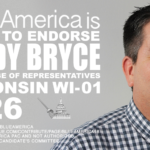Set Us Free -- Peter Buffett (2008)

Early on in our philanthropic journey, my wife and I became aware of something I started to call Philanthropic Colonialism. I noticed that a donor had the urge to “save the day” in some fashion. People (including me) who had very little knowledge of a particular place would think that they could solve a local problem. Whether it involved farming methods, education practices, job training or business development, over and over I would hear people discuss transplanting what worked in one setting directly into another with little regard for culture, geography or societal norms.
Often the results of our decisions had unintended consequences; distributing condoms to stop the spread of AIDS in a brothel area ended up creating a higher price for unprotected sex.
But now I think something even more damaging is going on.
Because of who my father is, I’ve been able to occupy some seats I never expected to sit in. Inside any important philanthropy meeting, you witness heads of state meeting with investment managers and corporate leaders. All are searching for answers with their right hand to problems that others in the room have created with their left. There are plenty of statistics that tell us that inequality is continually rising. At the same time, according to the Urban Institute, the nonprofit sector has been steadily growing. Between 2001 and 2011, the number of nonprofits increased 25 percent. Their growth rate now exceeds that of both the business and government sectors. It’s a massive business, with approximately $316 billion given away in 2012 in the United States alone and more than 9.4 million employed.
Philanthropy has become the “it” vehicle to level the playing field and has generated a growing number of gatherings, workshops and affinity groups.
As more lives and communities are destroyed by the system that creates vast amounts of wealth for the few, the more heroic it sounds to “give back.” It’s what I would call “conscience laundering” — feeling better about accumulating more than any one person could possibly need to live on by sprinkling a little around as an act of charity.
But more critically, as Buffett notes, it keeps the inequality going. The charity doesn't rise anyone out of poverty, or need. It's hard to argue against. Few charities actually attempt to do more than just allow the vulnerable to barely subsist.
Go read the rest of the article. What paradigm shift do you think would be the real solution to improve the life of people all around?


















